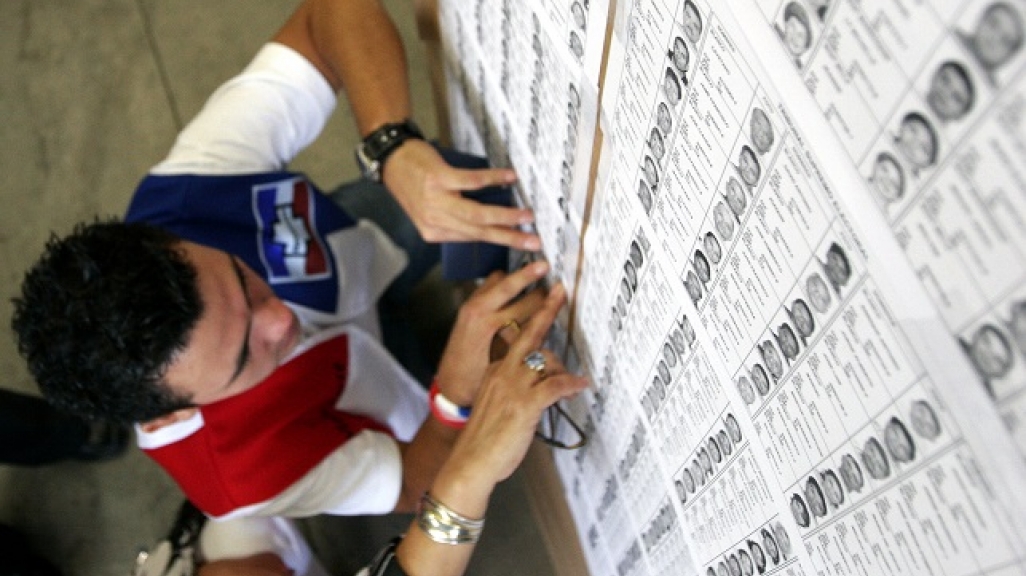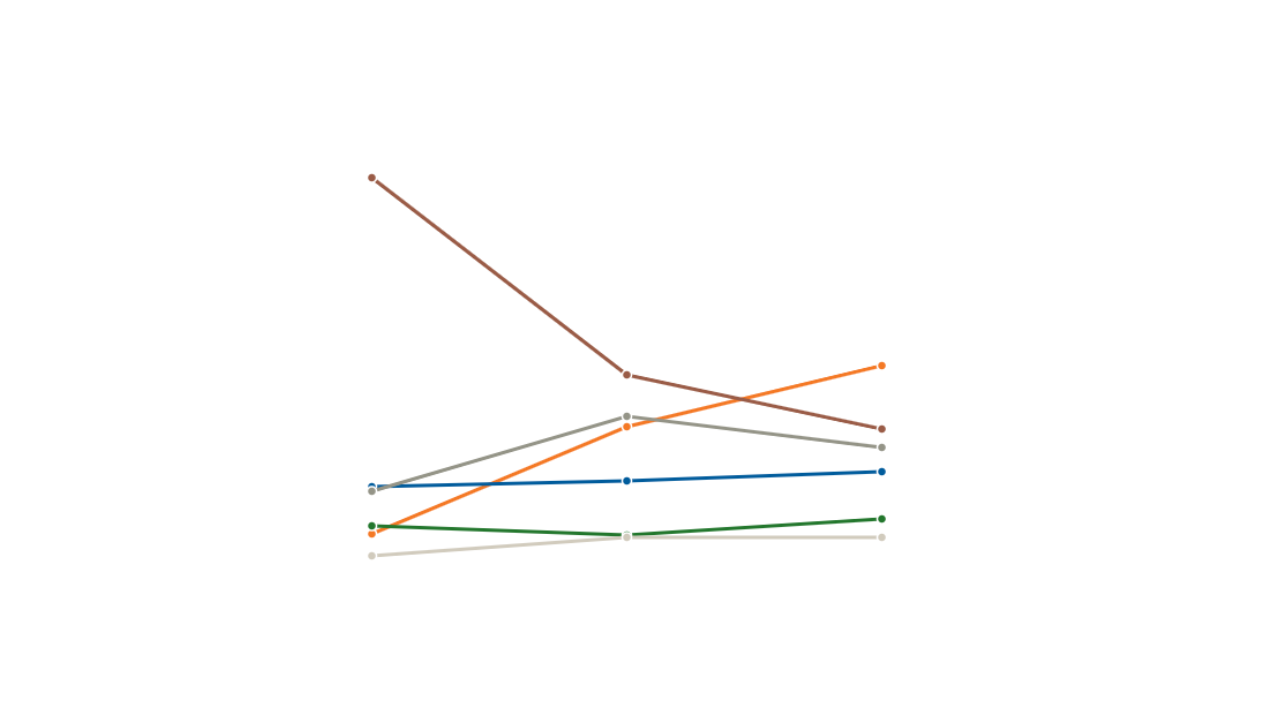El Salvador Update: Eight Points on the March 1 Election
El Salvador Update: Eight Points on the March 1 Election
Voters will elect legislators, as well as 262 mayors across the country. Learn more about what's at stake in the vote.
A year after El Salvador’s presidential runoff, voters will take to the polls again, this time to elect mayors and legislators. Get an overview of key points on the Central American country’s March 1 election.
How many posts are up for a vote?
When voters cast ballots on Sunday, they’ll elect all 84 deputies in the country’s unicameral Legislative Assembly to three-year terms, 262 mayors across the country, and 20 deputies to Parlacen—the parliamentary body of the Central American Integration System.
How many political parties will be represented on Sunday’s ballots?
Ten different parties will appear on the March 1 ballot. The two largest parties are the left-leaning Farabundo Martí National Liberation Front (FMLN) and the conservative National Republican Alliance (ARENA). The Grand Alliance for National Unity (GANA) ranks third in polls and, while some surveys show it getting more support than all remaining parties combined, it falls well behind both the governing FMLN party and main opposition party ARENA.
Still, as the International Republican Institute notes, GANA can play an important and possibly decisive role in a country divided between the two main parties. While GANA is a conservative party, it has formed alliances with the FMLN in the past.
How many people are registered to vote?
El Salvador’s total number of voters hit 4,911,672 for this election, according to El Salvador’s electoral tribunal. Female voters outnumber male voters by more than 300,000, and San Salvador accounts for a far larger portion of voters than any of the country’s other 13 departments. The country’s overall population is 6.34 million, so roughly 77 percent of Salvadorans are eligible to vote.
What do polls indicate about the election’s general outcome?
The University of Central America (UCA) conducted a survey between January 24 and February 2 that gave the FMLN the largest preference among voters, at 33.6 percent. ARENA and GANA followed, with 22.4 percent and 2.8 percent respectively. Still, 38.2 percent of respondents indicated no preference for any party.
Aside from the UCA poll putting the FMLN ahead, a poll published February 11 by El Salvador’s University of Technology (UTEC) found that 46.9 percent of respondents believe FMLN will win at the polls, compared to 31.4 percent for ARENA and 7.2 percent for GANA.
UTEC’s survey also showed that 38.3 percent of those surveyed believe FMLN candidates can best serve as mayors in their municipalities, compared to 34.3 percent in the case of ARENA.
If the polls are right, will there be much political change?
In the last legislative vote, ARENA captured 33 assembly seats, the FMLN won 31, and GANA won 11. However, ARENA couldn’t hold on to the majority as the party lost six deputies.
If the polls prove correct, ARENA won’t recapture control of the Legislative Assembly.
How are candidates polling when it comes to the capital’s mayoralty?
In the race for what could be considered the most important position up for grabs, the FMLN’s Nayib Bukele is polling well ahead of ARENA’s Edwin Zamora. UCA gives Bukele 49.8 percent against 30 percent for Zamora while a February 12 poll by Francisco Gavidia University puts the frontrunner at 60.2 percent compared to 18.8 percent for his rival.
Bukele is a business leader who was elected mayor of the municipality of Nuevo Cuscatlán in 2012. Observers note his departure in style from other politicians (he opts not to wear a tie) and even his party (he has foregone use of the traditional FMLN red during campaigns).
An op-ed in El Salvador’s La Página comments that Bukele dominated in mayoral debates by seeming more “serene” and articulate when cast against Zamora. The article also faulted ARENA for running a dirty campaign.
In turn, Zamora, who has represented San Salvador as a deputy in the Legislative Assembly, accused the Bukele campaign of smear tactics in relation to accusations that he benefited from government subsidies in 2010 as a co-owner of the firm Duraflex.
What are the top issues for voters?
The UCA survey shows that insecurity is, far and away, the biggest concern for Salvadoran voters, with 63.1 percent naming it as the leading issue. Violence came in second at 10.5 percent and the economy was third at 6.8 percent. Gangs outpaced unemployment as an election issue, at 6.6 percent and 5.4 percent respectively. The USG survey also put insecurity at the top of the list at 39.9 percent.
UCA also found confidence in the political process dropping from over 50 percent during last year’s presidential vote to just over 20 percent this time around. Some 43.9 percent of those surveyed believe electoral fraud will take place. Most voters feel that they do not benefit from the actions of political parties, and 58.7 percent say that most politicians make promises they don’t keep.
Electoral Reforms: What Will Be Different about the March 1 Vote?
A pair of reforms spells important changes in electoral processes on Sunday. As Julio Frank Right reported for Americas Quarterly, one is that blocked lists would no longer be permitted, which will “allow voters to choose between pre-determined party lists or select individual candidates from different political parties.”
A second reform will help voters cast ballots closer to home, given that they will be assigned to a polling location based on where they live rather than last name. This could help boost voter turnout; during the 2012 legislative elections, just 53 percent of voters participated.








